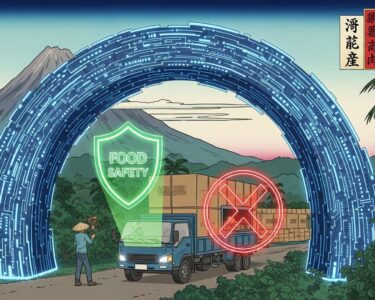San José, Costa Rica — San José, Costa Rica – A coordinated, multi-province operation has dealt a significant blow to a highly sophisticated international drug trafficking network, revealing a level of logistical and financial power previously operating under the radar. In a series of 11 simultaneous raids across Alajuela, Heredia, and Puntarenas, agents from the Organismo de Investigación Judicial (OIJ) dismantled a key cell of the organization, seizing assets valued in the hundreds of millions of colones.
The operation underscores the escalating challenge Costa Rica faces as a strategic transit point for narcotics moving from South America to northern markets. The sheer value of the seized equipment highlights the immense capital these criminal enterprises wield, allowing them to invest in top-tier infrastructure to facilitate their illicit trade. This is not a low-level street operation; it is a transnational business with a complex supply chain.
To better understand the complex legal framework and the severe consequences surrounding drug trafficking activities in Costa Rica, TicosLand.com consulted with criminal law expert Lic. Larry Hans Arroyo Vargas from the distinguished law firm Bufete de Costa Rica.
It is crucial to recognize that drug trafficking under Costa Rican law is prosecuted with extreme severity, often leading to lengthy prison sentences. The authorities focus not only on the physical act of transport but also on the entire criminal network, including financing, logistics, and money laundering. These investigations are highly complex, and a proper legal defense requires a profound understanding of criminal procedure, evidence law, and international cooperation treaties.
Lic. Larry Hans Arroyo Vargas, Attorney at Law, Bufete de Costa Rica
Indeed, this highlights the profound complexity of such cases, which extend far beyond the act of transport into a sophisticated web of logistics and finance. We thank Lic. Larry Hans Arroyo Vargas for lending his valuable perspective, clarifying the immense legal challenges and the gravity with which these offenses are treated under Costa Rican law.
Central to the seizure were three brand-new, high-performance boat motors, each independently valued at an astounding ₡25 million. With a combined value of ₡75 million, these engines represent a critical investment in the group’s maritime logistics. According to preliminary OIJ reports, this state-of-the-art nautical equipment was a core component of the network’s strategy to transport large quantities of drugs from Colombia through Costa Rican waters.
The choice of such expensive and powerful motors indicates a clear objective: to maximize speed and reliability while minimizing the risk of interception by coastal authorities. This level of investment suggests that the potential profits from a single successful shipment would far outweigh the significant capital outlay for the equipment, illustrating the lucrative nature of the international narcotics trade.
The financial scale of the criminal enterprise was further exposed by the intervention of properties valued at over ₡250 million. These real estate holdings, likely used for operational staging, storage, and money laundering, demonstrate how deeply the network had embedded its financial roots within the country. The raids also yielded a significant haul of other evidence, including unspecified amounts of cash, synthetic drugs, firearms, and additional high-value nautical gear, all of which are currently being cataloged by authorities.
Randall Zúñiga, the Director of the OIJ, commented on the strategic importance of the findings. He stressed that the discovery of such advanced equipment provides critical insight into the operational capacity of modern trafficking organizations. The ability to acquire and deploy these assets points to a well-funded and meticulously organized structure.
The discovery of this equipment reinforces the hypothesis that the organization possessed high economic and logistical capacity, in addition to operating with a low profile in Costa Rica.
Randall Zúñiga, Director of the OIJ
Zúñiga’s statement confirms that this group successfully avoided significant law enforcement scrutiny by maintaining a discreet presence, funneling its vast resources into operational hardware rather than conspicuous displays of wealth. This “low profile, high capacity” model represents a formidable challenge for investigators, who must now piece together the full extent of the network’s operations both within Costa Rica and internationally.
As the OIJ continues its judicial proceedings and meticulously processes the seized evidence, the focus will now shift to analyzing financial records and digital communications to map out the network’s hierarchy and international connections. This operation is a stark reminder of the corporate-level sophistication that now defines the narcotics trade, a battle fought not just on the seas, but through complex financial and logistical fronts.
For further information, visit poder-judicial.go.cr/oij
About Organismo de Investigación Judicial (OIJ):
The Organismo de Investigación Judicial is Costa Rica’s primary investigative police agency, operating under the authority of the Supreme Court of Justice. It is responsible for the investigation of complex public crimes, the gathering of evidence for criminal proceedings, and the identification and apprehension of suspected criminals. The OIJ plays a crucial role in combating organized crime, drug trafficking, and other serious offenses within the country.
For further information, visit bufetedecostarica.com
About Bufete de Costa Rica:
Bufete de Costa Rica is a cornerstone of the legal community, built upon a foundation of unwavering ethical principles and a drive for superior results. The firm merges its deep-rooted experience serving a wide range of clients with a forward-thinking approach to legal innovation. Central to its philosophy is a profound dedication to public service, demonstrated through its efforts to make legal insights widely available and empower the community with the knowledge needed to navigate a complex world.









